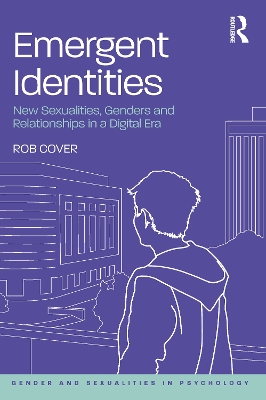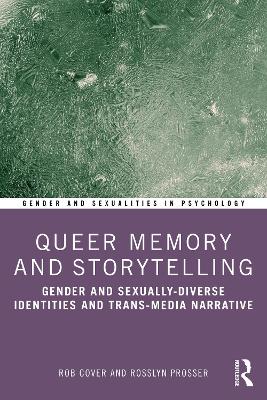Gender and Sexualities in Psychology
2 total works
Examining the emergence of new sexual and gender identities in the context of an ever-changing digital landscape, Emergent Identities considers how traditional, binary understandings of sexuality and gender are being challenged and overridden by a taxonomy of non-binary, fluid classifications and descriptors.
In this comprehensive account of the ongoing shift in our understandings of gender and sexuality, Cover explores how and why traditional masculine/feminine and hetero/homo dichotomies are quickly being replaced with identity labels such as heteroflexible, bigender, non-binary, asexual, sapiosexual, demisexual, ciswoman and transcurious. Drawing on real-world data, Cover considers how new ways of perceiving relationships, attraction and desire are contesting authorised, institutional knowledge on gender and sexuality. The book explores the role that digital communication practices have played in these developments and considers the implications of these new approaches for identity, individuality, creativity, media, healthcare and social belonging.
A timely response to recent developments in the field of gender identity, this will be a fascinating read for students of Psychology, Gender Studies, Media and Cultural Studies, and related areas as well as professionals in this field.
Queer Memory and Storytelling unpacks the ways in which the narrative practices of recounting past experiences play a formative role in formation of identities, cultures, and social change among gender and sexually diverse individuals.
Grounded in theoretical research, this work delves into historical accounts, case studies, and draws from the rich tapestry of interviews conducted during extensive LGBTQ+ research studies. It explores the power of memorial storytelling to shape the narratives surrounding gender and sexual diversity, offering profound insights into the role storytelling plays as a deeply subjective, personal, communal, and cultural form of expression. The book introduces a queer perspective that reframes the study of narrative psychology, community history, philosophies of subjectivity and the socio-cultural heritage of LGBTQ+ minority communities. It also focuses on the pivotal role played by memory and reflection found within online coming-up stories and contemporary modes of shared community memorialization. By employing queer theory, ethnographic research, interviews and meticulous media/textual analysis, the book presents new frameworks for comprehending the myriad facets of identity, and investigating what it means to remember and narrate selfhood in the context of social life, actively ‘queering’ the concept of memory.
Queer Memory and Storytelling will appeal to academics, researchers and students in psychology, sociology, gender and sexuality studies, and communication.

